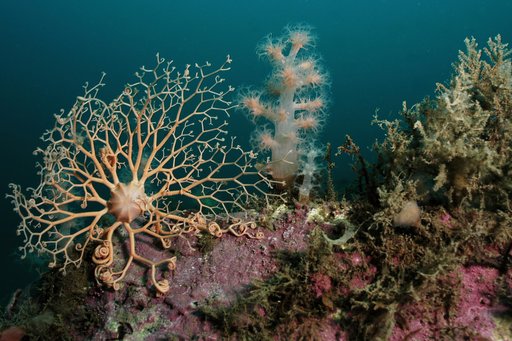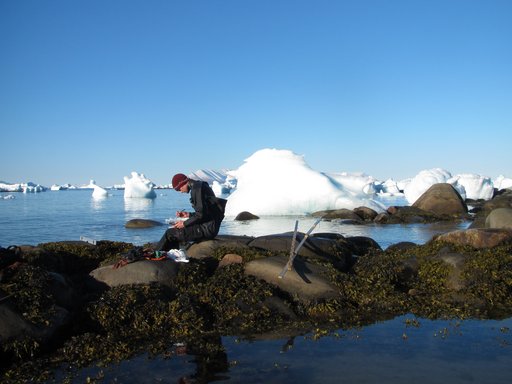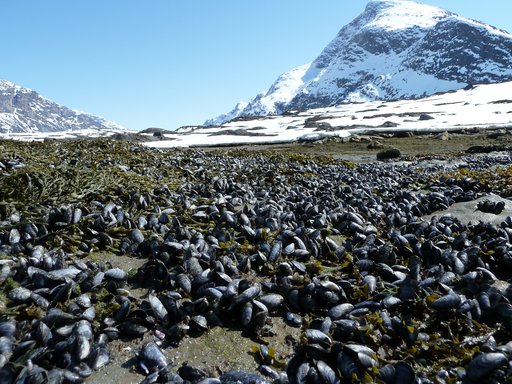Young Arctic marine biologist at Aarhus University receives the prestigious Sapere Aude: DFF-Starting Grant
Sapere Aude means 'dare to know', and the grant is awarded by the Independent Research Fund Denmark to talented early career researchers who are ready to lead a research project at the highest international level. Biologist Jakob Thyrring is one of the selected recipients of the grant, which he will use to build his own research group.
Jakob Thyrring is influenced by the Arctic waters around Greenland, where he has participated in several research projects. It has been six years since he completed his own Ph.D. Now he has the opportunity to supervise two Ph.D. students in Arctic ecology.
The 6.2 million DKK awarded from the Sapere Aude grant will be used to employ two Ph.D. students from 1 April 2024.
Independent Research Fund Denmark consists of five academic councils, and all five must agree when a Sapere Aude grant is awarded. Around 40 grants are awarded to all of Denmark's universities and research hospitals.
The grant recipients will be announced on Thursday 30 November at 06.00.
A new generation of Arctic researchers
"I was very happy when I was told that my project had been selected. I take it as a pat on the back for the research I've already done, and I'm really looking forward to getting started," says Jakob Thyrring.
The goal of the grant is to give researchers the opportunity to develop and strengthen their own research ideas and start up their own research teams. And that is exactly what Jakob Thyrring is looking forward to do.
"I would very much like to help develop a new generation of Arctic researchers here in Denmark. We are facing major challenges in the Arctic, which has been hit hard by climate change, and I hope this grant will be the start of something very big," says Jakob Thyrring.
Together with one of the two Ph.D. students, Jakob Thyrring will revisit Arctic locations from which data has been collected over the past 30 years. The goal is to get a thorough overview of the extent to which climate change has affected biodiversity on the Arctic seabed.
We are usually told that that polaranimals and plants are most impacted by climate change. But is this really true? The second Ph.D. student will address this question. This study focuses particularly on ecophysiology. That is, whether animals on the seabed change their way of life when temperatures rise.
From mussels to society
Jakob Thyrring did his Ph.D. at the Arctic Research Centre, Aarhus University, where he primarily studied the ability of mussels to tolerate variations in temperature. A series of mussels were collected along the entire west coast of Greenland and across the Arctic region.
After completing his Ph.D., Jakob Thyrring travelled to some of the world's leading foreign research institutions. For more than four years, he devoted himself to research at the British Antarctic Survey in the UK and the University of British Columbia in Canada. During his stays, he included more animals and stress factors (e.g. heat and pH) to study how the entire benthic fauna ecosystem in the Arctic reacts in response to climate change.
"We have only addressed a small portion of the changes that may occur and affect all parts of the Arctic Ocean and, thus, also the populations that make their living from fishing. It will be SO good to become an entire small research group here at Aarhus University that can contribute to the extensive work ahead of us," says Jakob Thyrring.
Further information:
Jakob Thyrring, Tenure Track Researcher, Department of Ecoscience and Arctic Research Centre, Aarhus University; E-mail: thyrring@ecos.au.dk, tel.: 5133 3714



